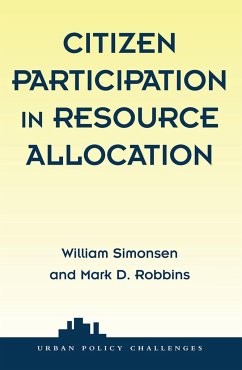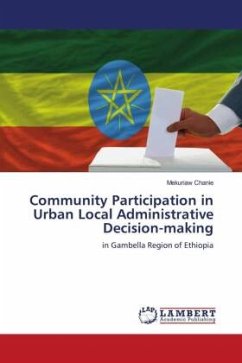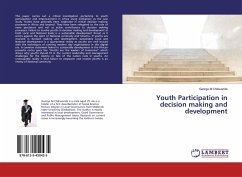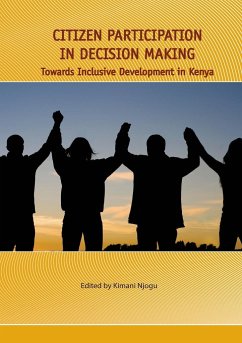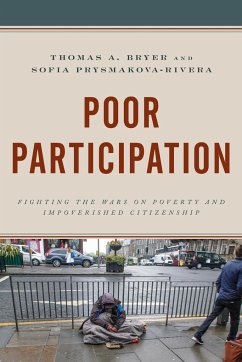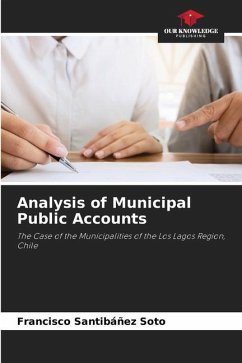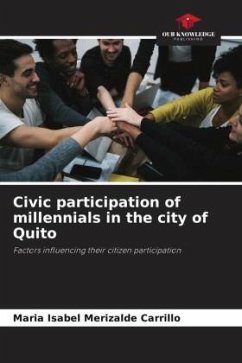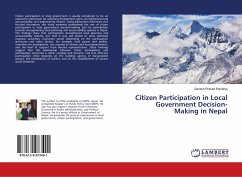
Citizen Participation in Local Government Decision-Making in Nepal
Versandkostenfrei!
Versandfertig in 6-10 Tagen
27,99 €
inkl. MwSt.

PAYBACK Punkte
14 °P sammeln!
Citizen participation in local government is usually considered to be an important mechanism for achieving development gains, strengthening local accountability, and empowering citizens. Using exploratory interviews and focused discussions, this study examines qualitatively the role of citizen participation in local government decision-making and its contribution towards strengthening local planning and accountability systems in Nepal. The findings show that participation strengthened local planning and accountability systems, but that it was also linked to some potential negative outcomes. Ou...
Citizen participation in local government is usually considered to be an important mechanism for achieving development gains, strengthening local accountability, and empowering citizens. Using exploratory interviews and focused discussions, this study examines qualitatively the role of citizen participation in local government decision-making and its contribution towards strengthening local planning and accountability systems in Nepal. The findings show that participation strengthened local planning and accountability systems, but that it was also linked to some potential negative outcomes. Outcomes varied depending on the participation structures and other factors, for example, local power and politics, incentives for participation, the capacity of citizens and local governments, and the level of support from elected representatives. These findings suggest that the relationship between citizen participation and participation outcomes is rather complex and dynamic, and that effective participation often depends on the building agency of marginalized groups, the mobilization of citizens, and on the establishment of vibrant social networks.




